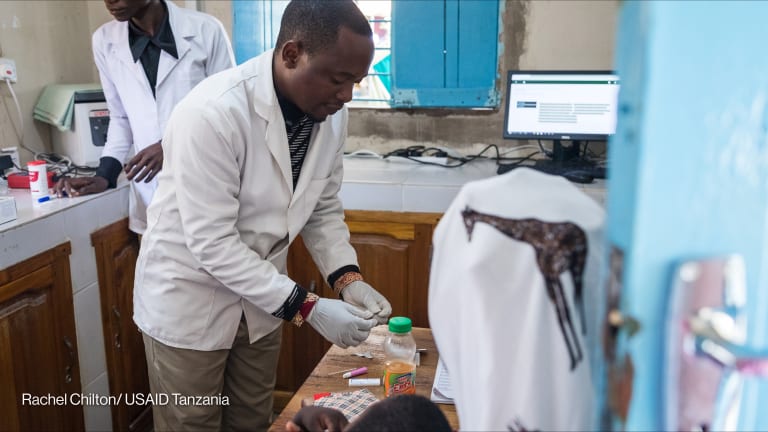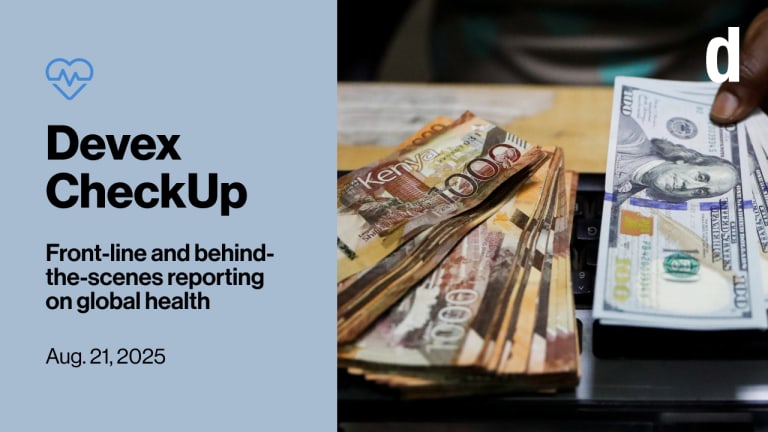
Merging the United Nations’ health and food security agencies is one idea being discussed by an expert group convened by the World Health Organization to provide policy recommendations in light of the COVID-19 pandemic.
The Pan-European Commission on Health and Sustainable Development, chaired by former Italian Prime Minister Mario Monti, launched in August 2020 and will present its final report this September.
A statement released Tuesday shows the direction of the group’s work, as it calls for a “fundamental rethinking of policy priorities well beyond health policies.”
Tuesday’s “call to action” floats a range of ideas including: establishing an Intergovernmental Panel on Health Threats, “pan-European measures to ensure the interoperability of health data,” promoting an International Pandemic Treaty, and “[creating] at the G20 level a Global Health Board, modelled on the Financial Stability Board established after the global financial crisis, which can evolve into a Global Public Goods Board that will identify failures in the provision of global public goods and marshal support from the international community to remedy them.”
“If you look at the major threats, in terms of pandemics and antimicrobial resistance, to global health, not one of the three institutions themselves [FAO, WHO and OIE] can deal with the major issues.”
— Jim O’Neill, Pan-European Commission on Health and Sustainable Development memberThe 19-member commission, featuring economists and former national leaders, is also discussing how to address “gaps and overlaps in existing structures, including the various United Nations specialized agencies.”
“We need to look again at the existing global health architecture, characterized by agencies working in silos,” Tuesday’s statement reads. “We must find ways to convene the necessary expertise and authority … with greater alignment between reinvigorated agencies such as the Food and Agriculture Organization of the United Nations (FAO), the United Nations Environment Programme (UNEP), WHO and the World Organisation for Animal Health (OIE). This alignment could take various forms, from a formal consultation to, in the longer term, a new coordinating structure.”
Commission member Jim O’Neill, chairman of the Chatham House think-tank and a former commercial secretary to the U.K. Treasury, told Devex Monday that “no body in the established international arena has the responsibilities or the legitimacy to solve the linkage between threats to humans that come from animals and vice-versa, or plants.”
“If you look at the major threats, in terms of pandemics and antimicrobial resistance, to global health, not one of the three institutions themselves [FAO, WHO and OIE] can deal with the major issues,” O’Neill said. “The ultimate thing would be to merge them into one organization.
“As soon as one says it, it slightly fills one with horror — making three bureaucracies into one even bigger one. But it would need to be streamlined and reformed and not lose any of the specialist parts of what each of the three do.”
O’Neill added that not all his fellow commissioners share his enthusiasm for the merger idea and that more work and reflection will be required in the lead up to the final report.
“Those that would oppose it I think would say, ‘Well, each of these organizations — the WHO is obviously the one under the particular attention of this crisis — aren’t good enough in being tough and decision-making and influencing, for the responsibilities they already have,” O’Neill said. “So why do you want to make them even bigger? And obviously you’d want to strengthen them and improve them at the same time if you were to merge them.”
“I think we’ve got some pretty cool, exciting ideas,” O’Neill said, adding that “having led the [U.K. review on Antimicrobial Resistance] I am strongly of the opinion that the best commissions are those where policymakers are considering your ideas before you are finished. One of the great attractions of doing what we are doing [Tuesday] is to get our ideas out there and to see what the response is.
“Assuming that the response [to the merger] isn’t, ‘What a ridiculous idea that is,’ we will now have to spend a lot of time working on exactly what that would mean, and what would it entail, what would be some of the downsides versus, the obvious, in my opinion, benefits.”








